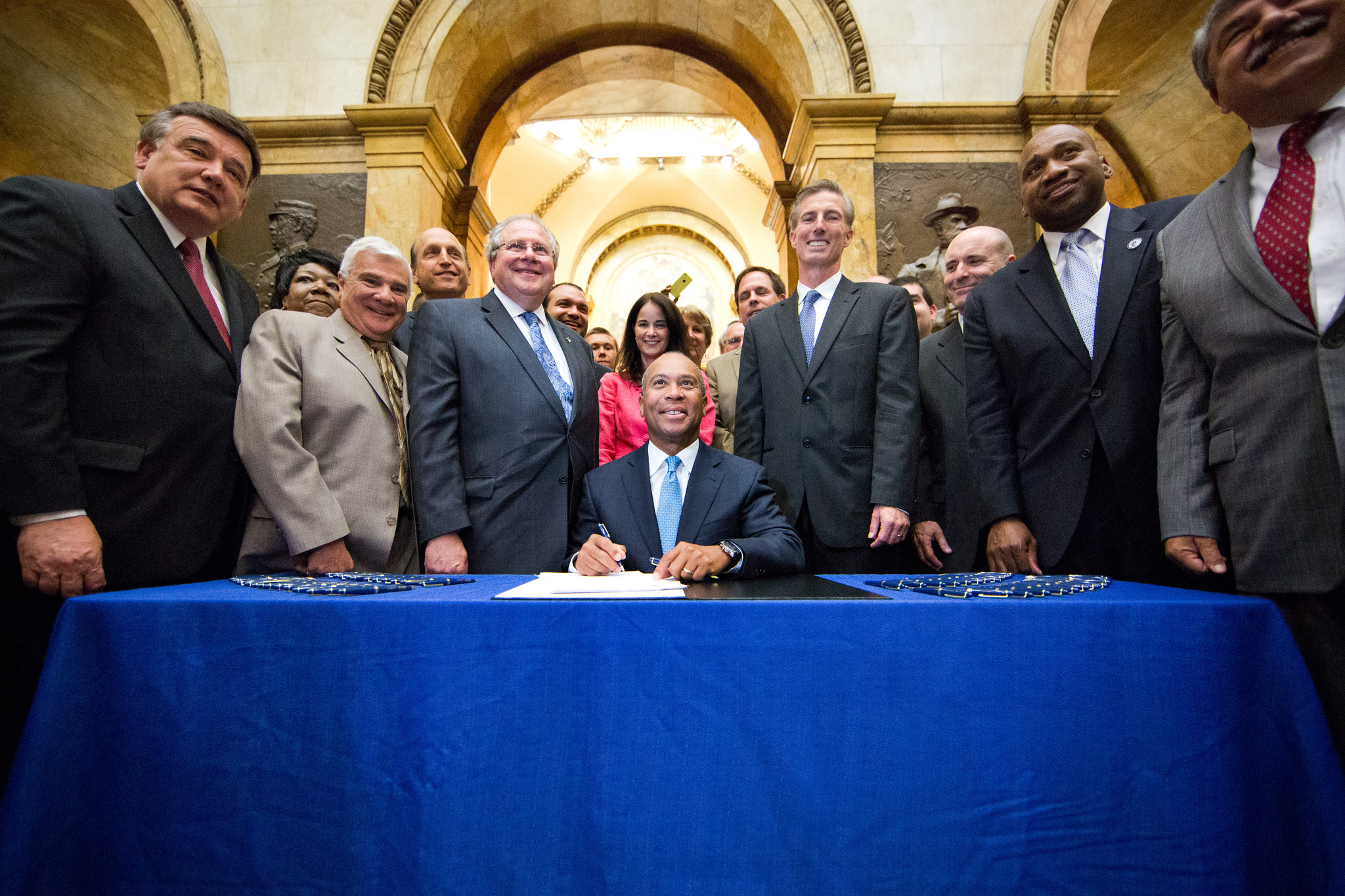Minimum wage workers in Massachusetts will see a raise beginning in the new year.
Massachusetts Governor Deval Patrick Thursday signed a bill to increase the minimum wage from the current $8 per hour to $11 per hour by 2017. The bill passed earlier by state lawmakers calls for one-dollar increments each January through 2017. It also provides a three-year freeze on unemployment insurance rates for employers.
“Raising the minimum wage brings a little relief to the working poor, many of whom do jobs we could not live without and who recycle money right back into the economy,” said Governor Patrick. “By signing this bill, we show the Nation that opportunity can and must be spread outward, not just upward. I thank the Legislature for their important work in reaching this milestone.”
“I am very proud of the Legislature for taking action to address minimum wage and unemployment insurance reform in the Commonwealth,” said Senate President Therese Murray. “Increasing the minimum wage to $11 an hour will provide much-needed relief to many hard-working residents and, by updating our unemployment insurance rating table and introducing a multi-rate freeze for our businesses, we are rewarding responsible companies and providing more financial predictability. These changes are necessary to create an environment here in Massachusetts where residents can succeed and thrive.”
“Today’s bill signing marks a new and hopeful beginning for families across the Commonwealth,” said House Speaker Robert A. DeLeo. “The industrious spirit of Massachusetts residents has made our state an economic and cultural leader. This legislation bolsters that asset, empowers hardworking individuals and provides businesses with the reform they need to be catalysts for economic growth. I thank Governor Patrick, Senate President Murray and my colleagues in the Legislature for their work on this landmark bill.”
At a signing ceremony, Governor Patrick said the wage increases would help thousands of low-income workers. Some business leaders call the legislation one-sided and say it would hurt small businesses and retailers.

